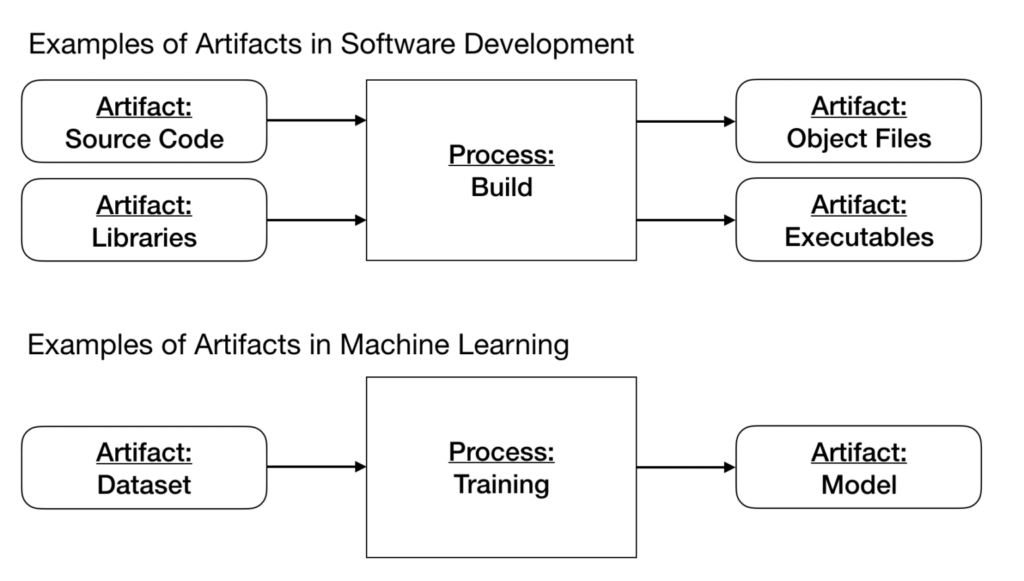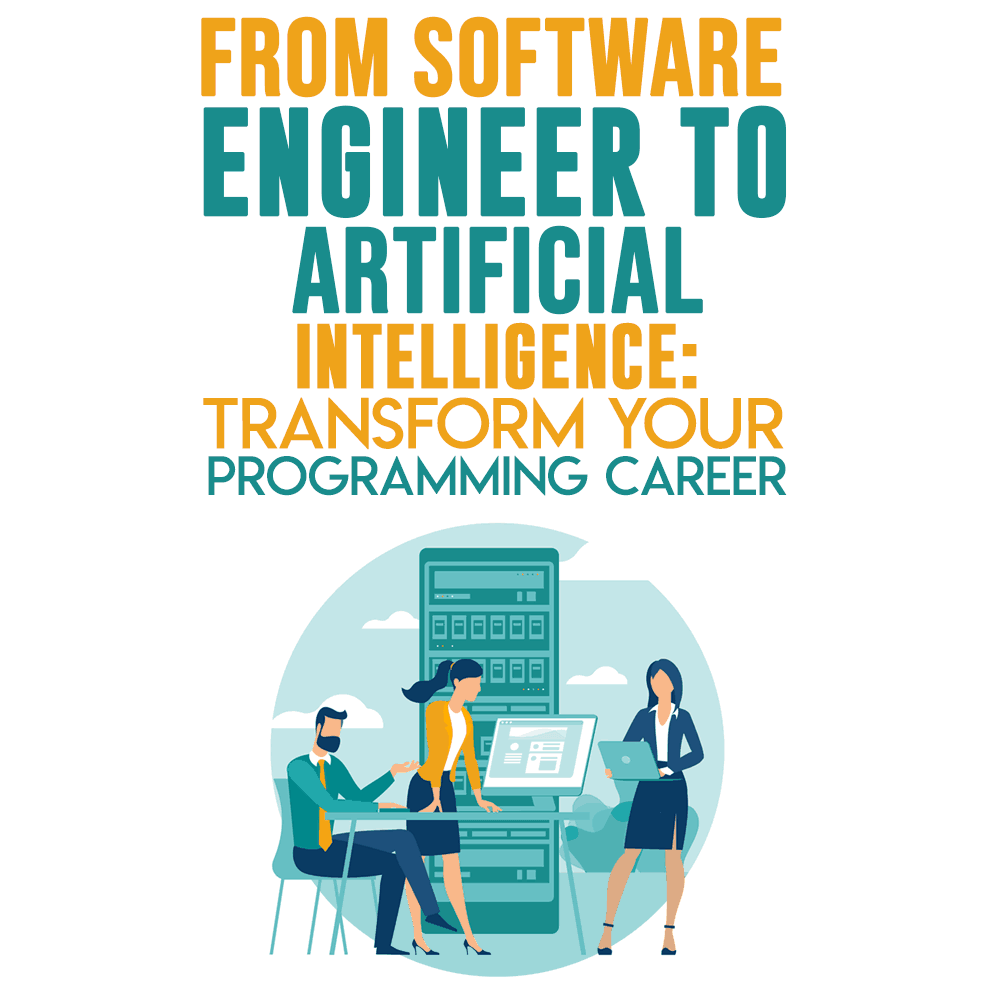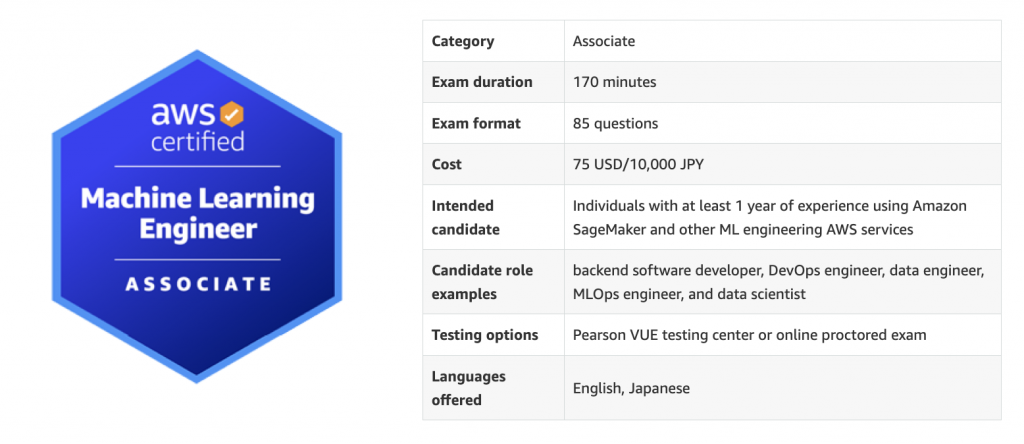All Categories
Featured
Table of Contents
- – 5 Easy Facts About How To Become A Machine Lea...
- – 4 Easy Facts About Why I Took A Machine Learni...
- – The 10-Second Trick For How Long Does It Take...
- – Our Artificial Intelligence Software Developm...
- – The Only Guide to Software Engineering For A...
- – 4 Simple Techniques For Top 20 Machine Learn...
- – Top Guidelines Of How To Become A Machine Le...
Some people assume that that's disloyalty. Well, that's my entire career. If somebody else did it, I'm going to use what that person did. The lesson is putting that aside. I'm forcing myself to analyze the possible solutions. It's even more about consuming the web content and attempting to use those ideas and much less regarding discovering a collection that does the work or searching for someone else that coded it.
Dig a little deeper in the mathematics at the beginning, just so I can build that structure. Santiago: Lastly, lesson number 7. This is a quote. It claims "You need to comprehend every detail of an algorithm if you intend to use it." And afterwards I state, "I think this is bullshit recommendations." I do not think that you have to recognize the nuts and screws of every algorithm prior to you utilize it.
I've been making use of neural networks for the longest time. I do have a sense of exactly how the slope descent works. I can not discuss it to you today. I would certainly need to go and check back to in fact obtain a much better intuition. That doesn't suggest that I can not address points making use of neural networks? (29:05) Santiago: Trying to force people to think "Well, you're not going to be successful unless you can clarify each and every single detail of how this works." It returns to our sorting instance I think that's just bullshit recommendations.
As a designer, I've dealt with several, many systems and I've utilized many, numerous points that I do not comprehend the nuts and screws of just how it works, although I understand the impact that they have. That's the final lesson on that thread. Alexey: The funny point is when I think of all these collections like Scikit-Learn the formulas they use inside to implement, for instance, logistic regression or another thing, are not the like the formulas we examine in artificial intelligence courses.
5 Easy Facts About How To Become A Machine Learning Engineer - Exponent Described
Even if we tried to discover to obtain all these fundamentals of machine learning, at the end, the formulas that these libraries utilize are different. Santiago: Yeah, absolutely. I assume we need a whole lot extra pragmatism in the industry.

By the way, there are 2 various paths. I generally speak with those that intend to operate in the industry that wish to have their influence there. There is a path for scientists which is totally different. I do not risk to discuss that due to the fact that I do not understand.
Right there outside, in the industry, materialism goes a lengthy means for certain. Santiago: There you go, yeah. Alexey: It is a good motivational speech.
4 Easy Facts About Why I Took A Machine Learning Course As A Software Engineer Explained
One of the things I wished to ask you. I am taking a note to talk concerning becoming better at coding. Yet initially, allow's cover a couple of things. (32:50) Alexey: Let's begin with core tools and frameworks that you need to discover to actually transition. Let's say I am a software designer.
I understand Java. I know SQL. I understand how to utilize Git. I understand Celebration. Perhaps I recognize Docker. All these things. And I listen to about artificial intelligence, it looks like an awesome thing. So, what are the core tools and frameworks? Yes, I saw this video and I get persuaded that I do not require to obtain deep into math.
What are the core devices and frameworks that I require to discover to do this? (33:10) Santiago: Yeah, absolutely. Wonderful inquiry. I believe, primary, you need to start discovering a bit of Python. Considering that you already recognize Java, I don't believe it's mosting likely to be a big transition for you.
Not since Python coincides as Java, however in a week, you're gon na get a great deal of the differences there. You're gon na be able to make some progress. That's primary. (33:47) Santiago: Then you obtain certain core devices that are mosting likely to be used throughout your whole career.
The 10-Second Trick For How Long Does It Take To Learn “Machine Learning” From A ...
You get SciKit Learn for the collection of maker knowing formulas. Those are tools that you're going to have to be using. I do not advise just going and learning about them out of the blue.
We can speak about specific programs later. Take one of those training courses that are mosting likely to begin presenting you to some issues and to some core ideas of artificial intelligence. Santiago: There is a program in Kaggle which is an intro. I do not remember the name, but if you go to Kaggle, they have tutorials there for cost-free.
What's excellent regarding it is that the only demand for you is to recognize Python. They're going to offer a trouble and tell you just how to make use of decision trees to fix that certain trouble. I believe that procedure is incredibly effective, since you go from no equipment finding out history, to understanding what the trouble is and why you can not resolve it with what you know right currently, which is straight software program design practices.
Our Artificial Intelligence Software Development Diaries
On the various other hand, ML engineers focus on structure and releasing artificial intelligence designs. They concentrate on training versions with data to make predictions or automate tasks. While there is overlap, AI designers take care of even more varied AI applications, while ML designers have a narrower concentrate on device knowing formulas and their sensible execution.

Equipment knowing engineers focus on developing and releasing maker knowing models into manufacturing systems. On the various other hand, data scientists have a more comprehensive function that consists of data collection, cleaning, expedition, and building versions.
As companies progressively take on AI and maker learning technologies, the demand for experienced professionals expands. Device learning engineers work on cutting-edge tasks, add to innovation, and have competitive wages. However, success in this field requires continual understanding and maintaining up with developing innovations and strategies. Machine knowing duties are normally well-paid, with the potential for high earning capacity.
ML is fundamentally different from standard software growth as it concentrates on teaching computers to pick up from information, instead of programs specific policies that are implemented systematically. Uncertainty of outcomes: You are most likely utilized to writing code with predictable outcomes, whether your function runs as soon as or a thousand times. In ML, nevertheless, the end results are much less particular.

Pre-training and fine-tuning: Just how these versions are educated on large datasets and then fine-tuned for details jobs. Applications of LLMs: Such as message generation, sentiment evaluation and information search and retrieval. Papers like "Focus is All You Required" by Vaswani et al., which introduced transformers. On-line tutorials and training courses concentrating on NLP and transformers, such as the Hugging Face training course on transformers.
The Only Guide to Software Engineering For Ai-enabled Systems (Se4ai)
The ability to manage codebases, merge adjustments, and resolve problems is simply as important in ML growth as it remains in standard software program jobs. The skills developed in debugging and testing software program applications are very transferable. While the context may change from debugging application logic to determining issues in information processing or design training the underlying concepts of methodical investigation, theory screening, and repetitive improvement are the same.
Machine knowing, at its core, is greatly reliant on data and likelihood theory. These are vital for comprehending exactly how formulas learn from data, make predictions, and assess their performance.
For those interested in LLMs, a thorough understanding of deep understanding styles is helpful. This includes not just the mechanics of semantic networks however also the design of details models for various use instances, like CNNs (Convolutional Neural Networks) for image handling and RNNs (Reoccurring Neural Networks) and transformers for consecutive data and all-natural language handling.
You need to understand these issues and learn techniques for identifying, reducing, and connecting regarding predisposition in ML models. This consists of the prospective effect of automated decisions and the moral implications. Many versions, particularly LLMs, require considerable computational sources that are often supplied by cloud platforms like AWS, Google Cloud, and Azure.
Building these skills will certainly not just facilitate a successful change into ML however also make certain that programmers can add efficiently and properly to the innovation of this vibrant field. Concept is necessary, yet absolutely nothing beats hands-on experience. Start dealing with jobs that enable you to apply what you've learned in a functional context.
Build your projects: Start with basic applications, such as a chatbot or a message summarization tool, and gradually raise complexity. The area of ML and LLMs is rapidly advancing, with brand-new advancements and technologies arising consistently.
4 Simple Techniques For Top 20 Machine Learning Bootcamps [+ Selection Guide]
Sign up with communities and discussion forums, such as Reddit's r/MachineLearning or community Slack channels, to review concepts and get recommendations. Attend workshops, meetups, and conferences to link with other experts in the area. Add to open-source projects or compose blog site posts regarding your knowing journey and tasks. As you acquire experience, begin trying to find possibilities to incorporate ML and LLMs into your job, or look for brand-new duties concentrated on these technologies.
Vectors, matrices, and their duty in ML algorithms. Terms like version, dataset, attributes, tags, training, reasoning, and recognition. Data collection, preprocessing methods, model training, analysis processes, and implementation considerations.
Choice Trees and Random Woodlands: Intuitive and interpretable versions. Matching issue kinds with appropriate models. Feedforward Networks, Convolutional Neural Networks (CNNs), Recurring Neural Networks (RNNs).
Information flow, makeover, and feature design techniques. Scalability concepts and performance optimization. API-driven techniques and microservices combination. Latency monitoring, scalability, and version control. Constant Integration/Continuous Implementation (CI/CD) for ML workflows. Model tracking, versioning, and efficiency monitoring. Detecting and dealing with adjustments in model performance over time. Attending to efficiency traffic jams and resource monitoring.
Top Guidelines Of How To Become A Machine Learning Engineer In 2025

Course OverviewMachine learning is the future for the future generation of software program professionals. This training course acts as a guide to maker knowing for software engineers. You'll be introduced to three of the most appropriate elements of the AI/ML self-control; supervised discovering, semantic networks, and deep knowing. You'll comprehend the distinctions in between typical shows and machine knowing by hands-on development in monitored discovering prior to constructing out intricate dispersed applications with neural networks.
This program works as an overview to machine lear ... Program Extra.
Table of Contents
- – 5 Easy Facts About How To Become A Machine Lea...
- – 4 Easy Facts About Why I Took A Machine Learni...
- – The 10-Second Trick For How Long Does It Take...
- – Our Artificial Intelligence Software Developm...
- – The Only Guide to Software Engineering For A...
- – 4 Simple Techniques For Top 20 Machine Learn...
- – Top Guidelines Of How To Become A Machine Le...
Latest Posts
The Best Python Courses For Data Science & Ai Interviews
Microsoft Software Engineer Interview Preparation – Key Strategies
The Top 10 Websites To Practice Software Engineer Interview Questions
More
Latest Posts
The Best Python Courses For Data Science & Ai Interviews
Microsoft Software Engineer Interview Preparation – Key Strategies
The Top 10 Websites To Practice Software Engineer Interview Questions